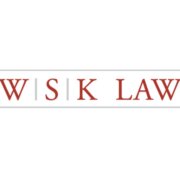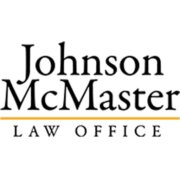Best Land Use & Zoning Lawyers in Cambridge
Share your needs with us, get contacted by law firms.
Free. Takes 2 min.
Free Guide to Hiring a Real Estate Lawyer
List of the best lawyers in Cambridge, Canada
About Land Use & Zoning Law in Cambridge, Canada
Land use and zoning law is an area of municipal law that regulates how lands and buildings can be used within a specific geographic area. In Cambridge, Ontario, zoning bylaws and the Official Plan set out rules and guidelines for the development of property, including residential, commercial, industrial, and institutional uses. These regulations are implemented by the City of Cambridge in accordance with provincial legislation such as Ontario's Planning Act. Zoning laws dictate everything from lot sizes and building heights to permitted uses and green space requirements, shaping how the city grows and ensuring the compatibility of neighboring land uses.
Why You May Need a Lawyer
There are several situations where consulting a lawyer who specializes in land use and zoning law can be crucial in Cambridge:
- Applying for a zoning bylaw amendment or minor variance
- Challenging the denial of a development application
- Understanding your rights and obligations when buying or selling property
- Dealing with bylaw enforcement issues or property disputes
- Navigating complex land severance or subdivision processes
- Proposing a new business or construction project not currently allowed by existing zoning
- Objecting to a neighbouring development or property use change
A knowledgeable lawyer can help you understand the local regulatory landscape, ensure compliance with all requirements, and effectively represent your interests during negotiations, applications, or appeals.
Local Laws Overview
Cambridge's approach to land use and zoning is governed by its Official Plan, Zoning Bylaw, and relevant provincial legislation. Key aspects include:
- Official Plan: This is the guiding policy for long-term growth, land use, and development patterns in the city. It sets out vision and objectives for community development, environmental protection, and infrastructure planning.
- Zoning Bylaw: The zoning bylaw dictates specific land uses and sets out detailed regulations for each zone. This includes what types of buildings are allowed, density, setbacks, parking, and landscaping requirements.
- Committee of Adjustment: Handles applications for minor variances and land severances. Property owners may apply for permission to deviate from zoning requirements under certain conditions.
- Site Plan Approval: Certain developments require site plan approval from the City to ensure conformity with zoning, aesthetics, and infrastructure considerations.
- Public Consultation: Many significant zoning changes and developments require public notice and input before approval.
- Ontario Land Tribunal (OLT): Disputes or appeals related to planning decisions can be addressed through the OLT, a provincial tribunal that handles land use and development conflicts.
Frequently Asked Questions
What is zoning and how does it affect my property in Cambridge?
Zoning refers to municipal rules that dictate how land and buildings can be used in specific areas. Zoning affects permitted uses, building size and location, and more. You must comply with your property's zoning classification when planning any development or new uses.
How do I find out my property’s zoning?
You can find your property's zoning by referring to the City of Cambridge interactive zoning maps or by contacting the City’s Planning Department directly. They can provide official information about your property’s zoning designation and permitted uses.
Can I change the zoning of my property?
Yes, but it requires applying for a zoning bylaw amendment. This process involves submitting an application, public notification, consultation, and ultimately, a decision by City Council. Legal and planning expertise is advisable.
What is a minor variance and when would I need one?
A minor variance allows you to obtain relief from specific zoning requirements if your project is close to meeting the rules but requires slight adjustments, such as an expanded setback or reduced parking. Applications are heard by the Committee of Adjustment.
Do I need approval to sever or subdivide my land?
Yes. Severing or subdividing land in Cambridge requires a consent application through the Committee of Adjustment or other appropriate municipal channels to ensure the new lots comply with zoning and planning standards.
What are common reasons for zoning disputes?
Disputes commonly arise over property boundaries, non-conforming uses, enforcement of bylaws, neighbour objections to new developments, or disagreement with municipal planning decisions.
How can I appeal a City decision about zoning or land use?
If unhappy with a planning or zoning decision, you may appeal to the Ontario Land Tribunal within specific timeframes. This process can be complex and legal assistance is often advisable.
What happens if I use my property in violation of zoning bylaws?
The City may issue orders to comply, fines, or seek court enforcement. Continued non-compliance can result in significant penalties or legal action to halt the prohibited use or development.
Can I oppose development projects near my property?
Yes. Public notice is given for most significant zoning or planning applications. As a resident or property owner, you may submit objections in writing, attend public meetings, and, in some cases, appeal decisions.
Do heritage properties have special land use rules?
Yes. Designated heritage properties or properties in heritage districts are subject to additional requirements, often restricting alterations and requiring special permits for changes to ensure the building’s character is preserved.
Additional Resources
If you need further assistance or information, the following resources can help:
- City of Cambridge Planning Department
- City of Cambridge Zoning Bylaw Documents and Maps
- Ontario Land Tribunal (OLT)
- Ontario Ministry of Municipal Affairs and Housing
- Legal Aid Ontario (for those who qualify financially)
- Local real estate or land use lawyers
- Ontario Professional Planners Institute
- Waterloo Region Real Estate Board
Next Steps
If you believe you need legal assistance with a land use or zoning matter in Cambridge, consider taking the following steps:
- Gather all relevant documents about your property, including surveys, title documents, and municipal correspondence.
- Review the City of Cambridge’s zoning maps and bylaws to understand your current zoning situation.
- Make notes of any specific concerns, objectives, or questions you have.
- Contact a lawyer with experience in land use and municipal law. Arrange an initial consultation to discuss your situation in detail.
- Be prepared to provide background information and ask about timelines, procedures, and costs.
- Follow your lawyer’s advice on communicating with the City or other parties to ensure your interests are properly represented and protected.
Legal issues in land use and zoning can be complex, but the right guidance can help you navigate municipal regulations and avoid costly errors.
Lawzana helps you find the best lawyers and law firms in Cambridge through a curated and pre-screened list of qualified legal professionals. Our platform offers rankings and detailed profiles of attorneys and law firms, allowing you to compare based on practice areas, including Land Use & Zoning, experience, and client feedback.
Each profile includes a description of the firm's areas of practice, client reviews, team members and partners, year of establishment, spoken languages, office locations, contact information, social media presence, and any published articles or resources. Most firms on our platform speak English and are experienced in both local and international legal matters.
Get a quote from top-rated law firms in Cambridge, Canada — quickly, securely, and without unnecessary hassle.
Disclaimer:
The information provided on this page is for general informational purposes only and does not constitute legal advice. While we strive to ensure the accuracy and relevance of the content, legal information may change over time, and interpretations of the law can vary. You should always consult with a qualified legal professional for advice specific to your situation.
We disclaim all liability for actions taken or not taken based on the content of this page. If you believe any information is incorrect or outdated, please contact us, and we will review and update it where appropriate.











